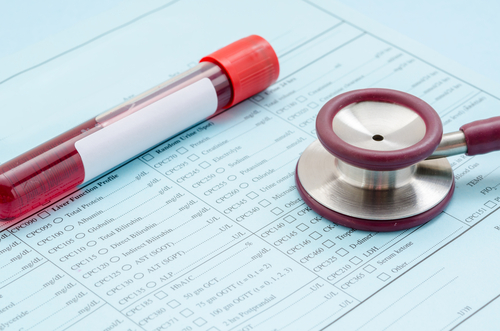Advate is Safe, Effective Therapy for Hemophilia A, Japanese Study Finds
Written by |

Advate is an effective and well-tolerated treatment among patients with hemophilia A, according to an observational, long-term, Japanese study.
The treatment showed better results when used as a preventive, rather than an on-demand, therapy.
The findings were reported in an article titled “Inhibitor development, safety and efficacy of Advate among previously treated patients with hemophilia A in a postmarketing surveillance in Japan,” published in the International Journal of Hematology.
Hemophilia A is a genetic disease caused by a reduced action of clotting factor VIII (FVIII), resulting in bleeding. The primary treatment for the disease aims to reduce bleeding episodes by replacing the missing FVIII (replacement therapy). Regular prophylaxis (preventive therapy) has shown good results in patients and is the current standard of care.
The most severe complication associated with replacement therapies is the production of FVIII inhibitors — antibodies produced by the patient’s body to neutralize the infused FVIII — which can lead to significant bleeding.
Advate, marketed by Shire, is an artificially produced FVIII that was approved for hemophilia A patients in Japan in 2006, and has been widely used ever since as a prophylactic therapy, and as a treatment for on-demand control of bleeding episodes.
Researchers in Japan conducted a post-marketing, multi-center, surveillance study, from February 2007 to June 2012, to evaluate the long-term safety and effectiveness of Advate in hemophilia A patients who had received other treatments.
They compared Advate’s effects under a prophylactic regimen (treatment one to three times per week, independent of bleeding events), and on-demand regimen (as a response to a bleeding event). The effectiveness was related to the number of bleeding events per year, and the safety to the number of reported adverse drug reactions.
Overall, 352 patients (mean age 25.8, ranging from 1 to 76 years) were recruited from 88 medical institutions. Of these, 266 (75.6%) had severe hemophilia A; 63 (17.9%) had moderate disease, and 21 (6.0%) had mild disease. For two (0.6%) the patients, the disease severity was unknown.
At the time of enrollment, 84.7% of the patients had received FVIII concentrates for at least 151 days. Patients were followed for two years on average.
Results showed that Advate was effective in both treatment regimens in patients with hemophilia A.
“Favorable prophylactic and on-demand hemostatic efficacy (“excellent” or “good”) were shown in 88.5–100% of patients across all treatment regimens,” the team wrote.
However, Advate treatment seemed to be significantly more effective as a prophylactic regimen. Patients treated with Advate on-demand had an average of 36.6 bleeds/year, whereas the prophylaxis group had an average of 8.5 bleeds/year.
The values were similar in the subset of patients with severe hemophilia — 37.9 in the on-demand, and 8.9 bleeds/year in the prophylaxis group.
Overall, the team concluded that “the prophylactic and on-demand use of [Advate] was shown to be effective in the majority of the patients across the treatment groups,” they wrote.
“The use of [Advate] for the treatment of hemophilia A was, therefore, considered to be well-tolerated and effective in postmarketing daily clinical practice in Japan,” they concluded.


